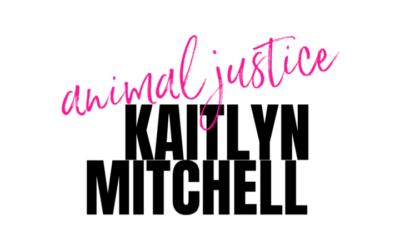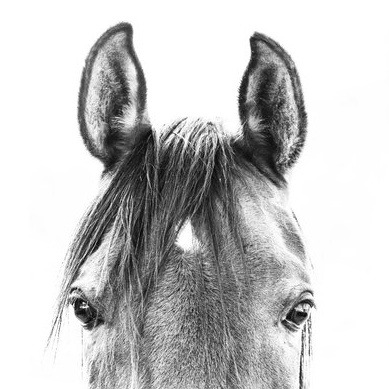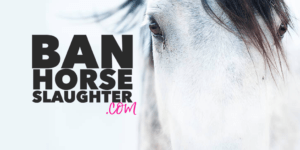30 HOURS NO FOOD | NO WATER | NO VET CARE
THANK YOU to all who worked together to create this story in the Winnipeg Free Press.
It’s well-written, tugs at the heartstrings, and provides facts and figures.
Canadian and want to know what you can do to help ban the slaughter of horses in Canada and beyond?
Please start by sending an email to your Member of Parliament – or better yet place a call to them.
Who they are, what to write, and what to say – here. Please note, it doesn’t have to be fancy!
American? Go here. Australian? Here.

Cruel exports
Horses from Winnipeg sent abroad for slaughter
By: Janine LeGal
Posted: 2:00 AM CDT Saturday, Mar. 18, 2023
Horses have forever been admired, featured prominently in popular children’s books and television programs, noted for being sleek, majestic, poetry in motion. But they also have a high level of emotional intelligence. A University of Sussex study found that horses can read emotional cues from our facial expressions, not only recognizing human emotions, but also deeply absorbing them.
Colleen goes on to share some of her personal experiences and how valuable horses in the care of the Little Red Barn have been to those lucky enough to spend time with them.
Further on in the article…
Some of the facts about the slaughter of horses in Canada for human consumption are well expressed – as well as an overview of the export of horses to Japan (and other markets) for slaughter for the same purpose.
It can be jarring then, to know that Canada slaughters roughly 25,000 horses annually and is one of the top exporters of horse meat in the world, with an annual revenue of roughly $80 million.
Canada’s horse exportation industry ships from 3,000-5,000 horses annually. (Canada has exported more than 40,000 draft horses since 2013.)
Draft horses bred specifically for exportation are shipped out from Edmonton, Calgary and Winnipeg. This, despite the fact that more than two-thirds of Canadians are against exporting live horses for slaughter, according to Manitoba Animal Save, an animal advocacy organization. The Liberal Party committed to banning the practice in its September 2021 election campaign but, as of yet, nothing has changed.
For the last 5 years, Danae Tonge of Manitoba Animal Save has witnessed firsthand the loading of horses at the Winnipeg Airport – horses destined for slaughter in Japan (and sometimes Korea).
“They are terrified, subject to turbulence and air pressure changes and some may fall during turbulence or take off, and be trampled by their crate mates, unable to escape. They cannot move around; they cannot lay down.”
Tonge recalls a recent horse shipment from Winnipeg in which travel time had exceeded more than 30 hours. Three horses were found down in their crate upon arrival in Japan. There have been several documented incidents of injured or dead horses on flights from Canada to Japan.
BAN HORSE SLAUGHTER IS DEDICATED TO:
1. Preventing horses and other equines from entering the slaughter pipeline.
2. Banning horse slaughter or the slaughter of any equine for any purpose within Canada - including the slaughter of horses and other equines imported from the USA.
3. Banning the export of horses from the USA to Canada or Mexico for slaughter.
4. Banning the export of horses from Canada to any other market for slaughter.
We are 100% volunteer & crowdfunded.
0% goes towards salaries. Yes, ZERO.

T-SHIRTS IN SUPPORT OF HORSE RESCUE FUND
LIMITED TIME OFFER FREE SHIPPING CANADA & USA
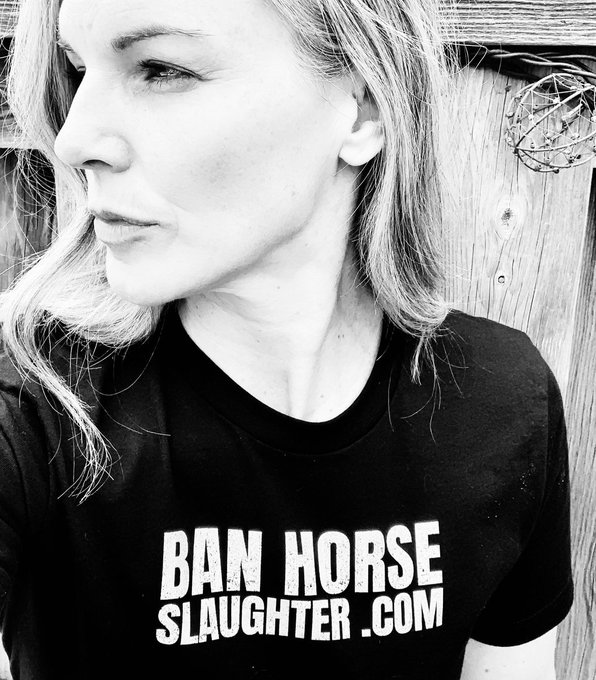
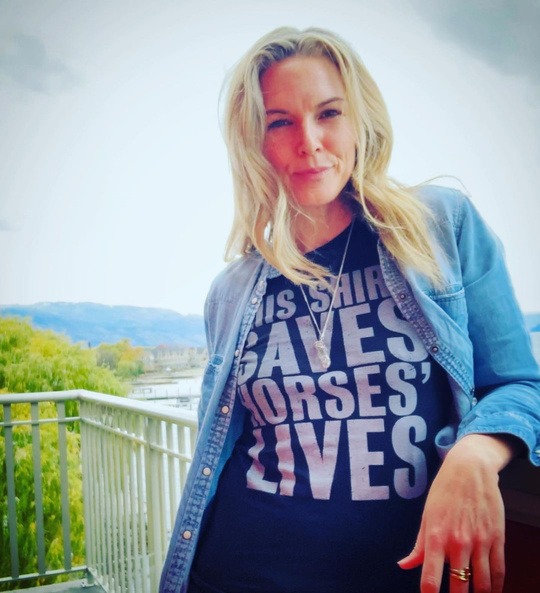
CANADA SLAUGHTERS HORSES FOR HUMAN CONSUMPTION
It may be hard for some to believe that tens of thousands of horses, including pets, are routinely slaughtered in Canada, for human consumption.
Some of the meat is consumed in Canada and much of it is shipped to the European Union and other markets, including Japan.
The barbaric slaughter of horses is currently not legal in the United States, BUT horses, including pets and ex-racehorses, from the United States are shipped to Canada and to Mexico to be slaughtered.
In addition Canada allows for the transportation of live horses to Japan, to be slaughtered for human consumption, and unfortunately the transportation of horses destined for slaughter within Canada, and by air, is far from humane.
VIDEO: KAITLYN MITCHELL ANIMAL JUSTICE
STANDING COMMITTEE ON AGRICULTURE AND AGRI-FOODFEB. 29, 2024: Director of Legal Advocacy, Animal Justice Canada, lawyer, tireless advocate AKA superhero Kaitlyn Mitchell spoke before the Standing Committee on Agriculture and Agri-food on Bill C-355. To say we were...
VIDEO: LEAH TAYLOR ROY
STANDING COMMITTEE ON AGRICULTURE AND AGRI-FOODLiberal MP Leah Taylor Roy is a driving force behind Bill C-355. We love how she made use of the short time given her to set the record straight as to how pet, show, sport and race horses are shipped by air versus the...
VIDEO: LIANNE ROOD BILL C-355
STANDING COMMITTEE ON AGRICULTURE AND AGRI-FOODConservative MP Lianne Rood who voted against Bill C-355 going to committee questioned Director of Legal Advocacy for Animal Justice Canada, Kaitlyn Mitchell...The brief mentioned in video, jointly submitted by Canadian...



